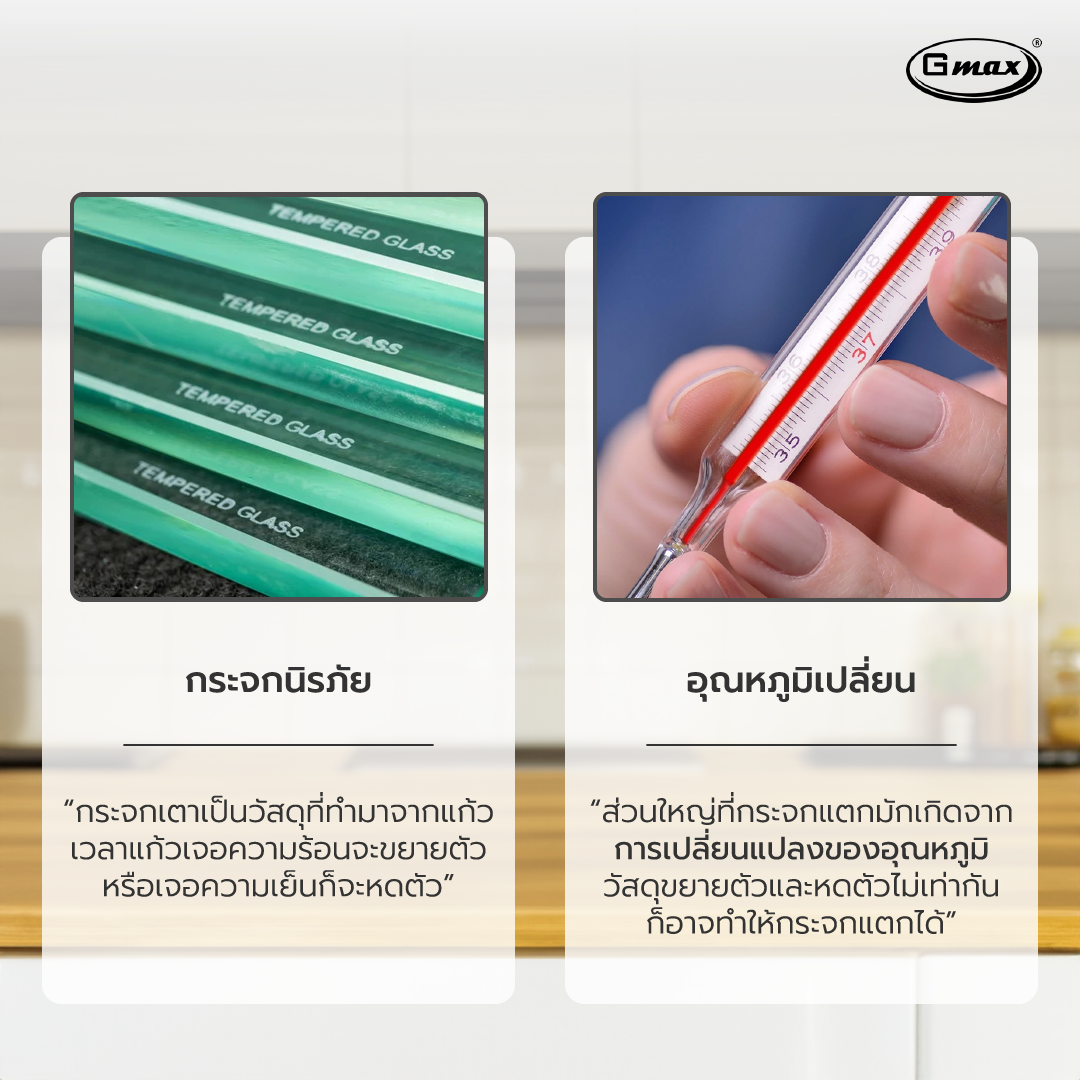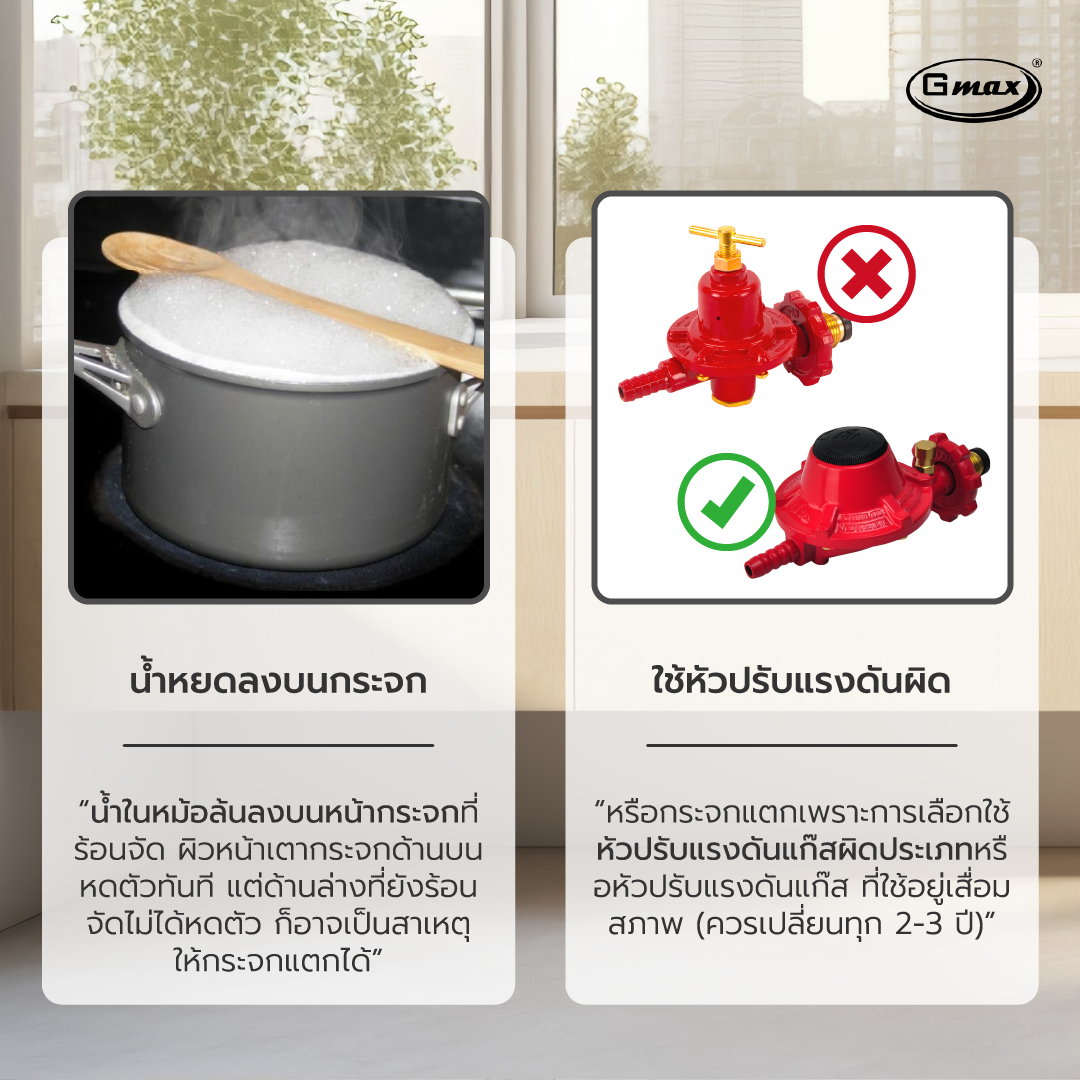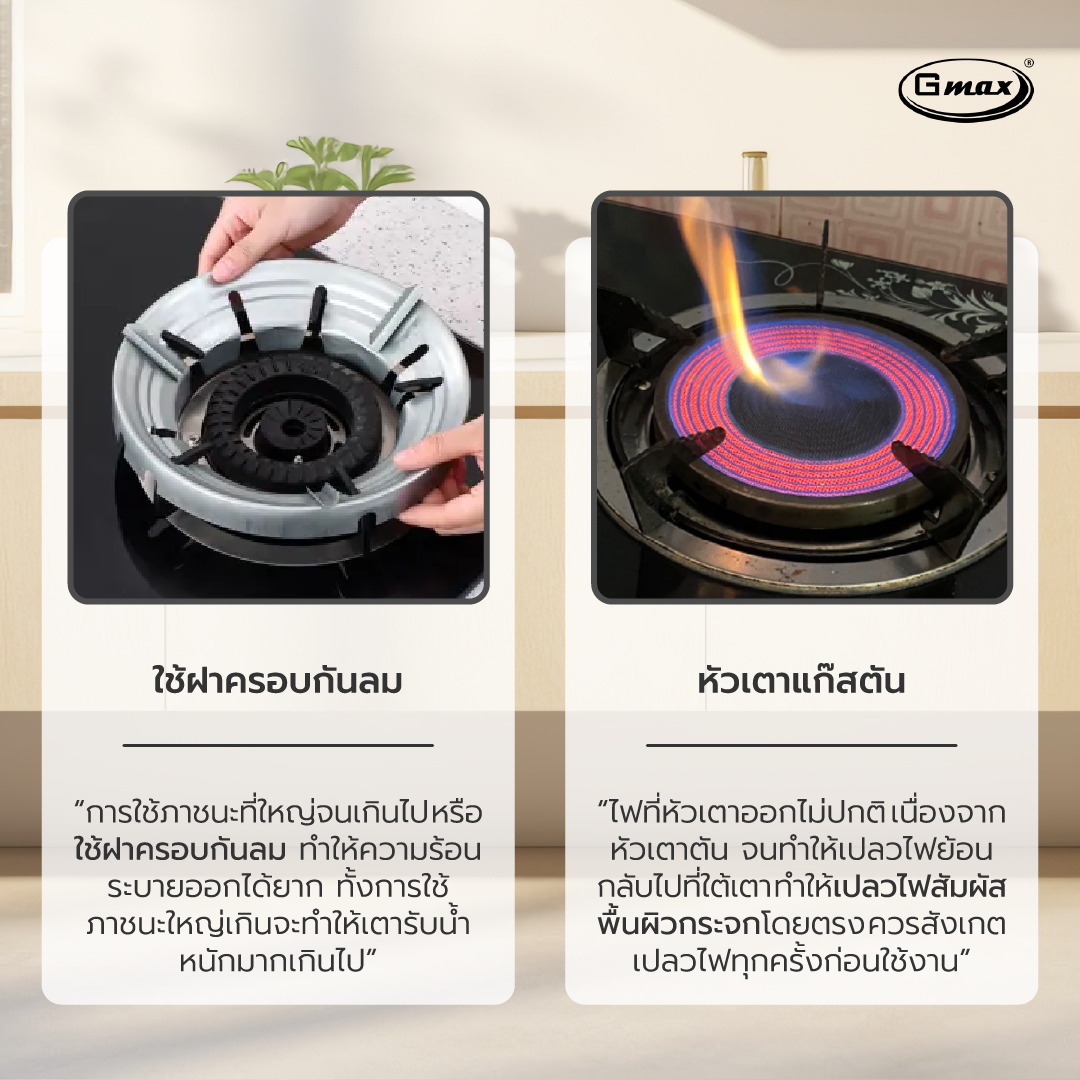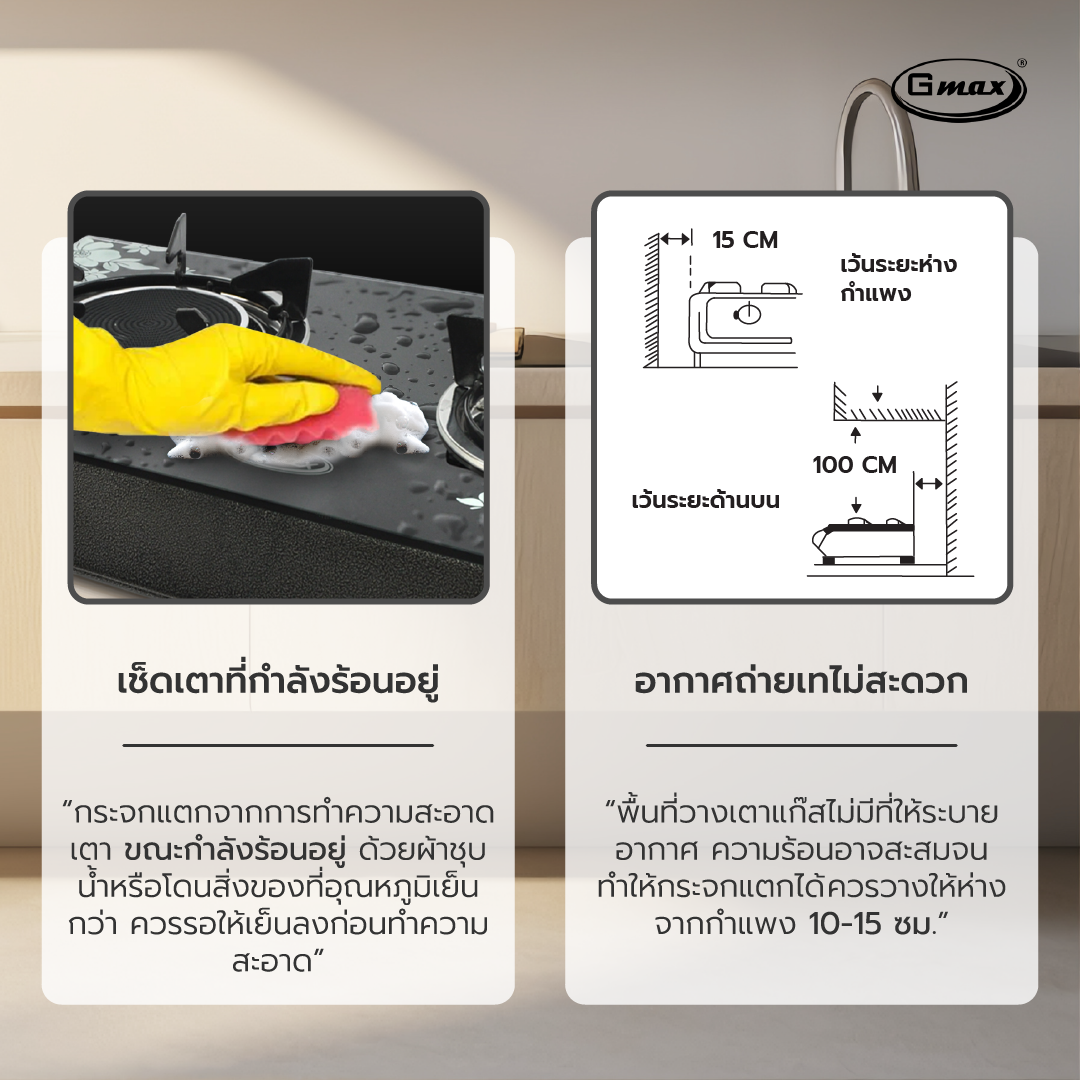How can a gas stove glass be broken?
Maintaining and preventing issues with a gas stove glass top is crucial for safety and the longevity of your appliance. Here are some causes and prevention tips:

Gas stove glass is made of glass:
- Glass expands when heated and contracts when cooled, and rapid temperature changes can cause the glass to break.
Temperature changes:- Rapid temperature changes cause materials to expand and contract unevenly, which can lead to glass breakage.
- Prevention: Avoid exposing the glass stove top to rapid temperature changes.
 Water overflowing onto a hot glass surface:
Water overflowing onto a hot glass surface:- When water overflows onto a hot glass surface, the top layer of glass contracts immediately while the bottom layer remains hot, causing the glass to crack.
- Prevention: Be cautious to prevent water from overflowing onto the hot glass.
Using the wrong type or expired gas pressure regulator:
- Incorrect or expired gas pressure regulators can cause imbalances in pressure and temperature.
- Prevention: Use the appropriate gas pressure regulator and replace it every 2-3 years.

Using excessively large cookware or wind guards:
- Large cookware can place excessive weight on the stove, and wind guards can make it difficult for heat to dissipate.
- Prevention: Use appropriately sized cookware and avoid using wind guards.
Irregular flame from the burner:
- Blocked burners can cause the flame to backtrack underneath the stove, directly contacting the glass surface.
- Prevention: Regularly check the flame before using and clean the burners to prevent blockages.

Cleaning the stove while it's still hot:
- Using a damp cloth or items with a lower temperature to clean a hot stove can cause the glass to crack.
- Prevention: Wait for the stove to cool down before cleaning it.
Insufficient ventilation around the stove:
- Accumulated heat can cause the glass to break.
- Prevention: Place the stove at least 10-15 cm away from the wall to allow for proper ventilation.
Following these guidelines will help ensure your gas stove operates safely and extends its lifespan.





